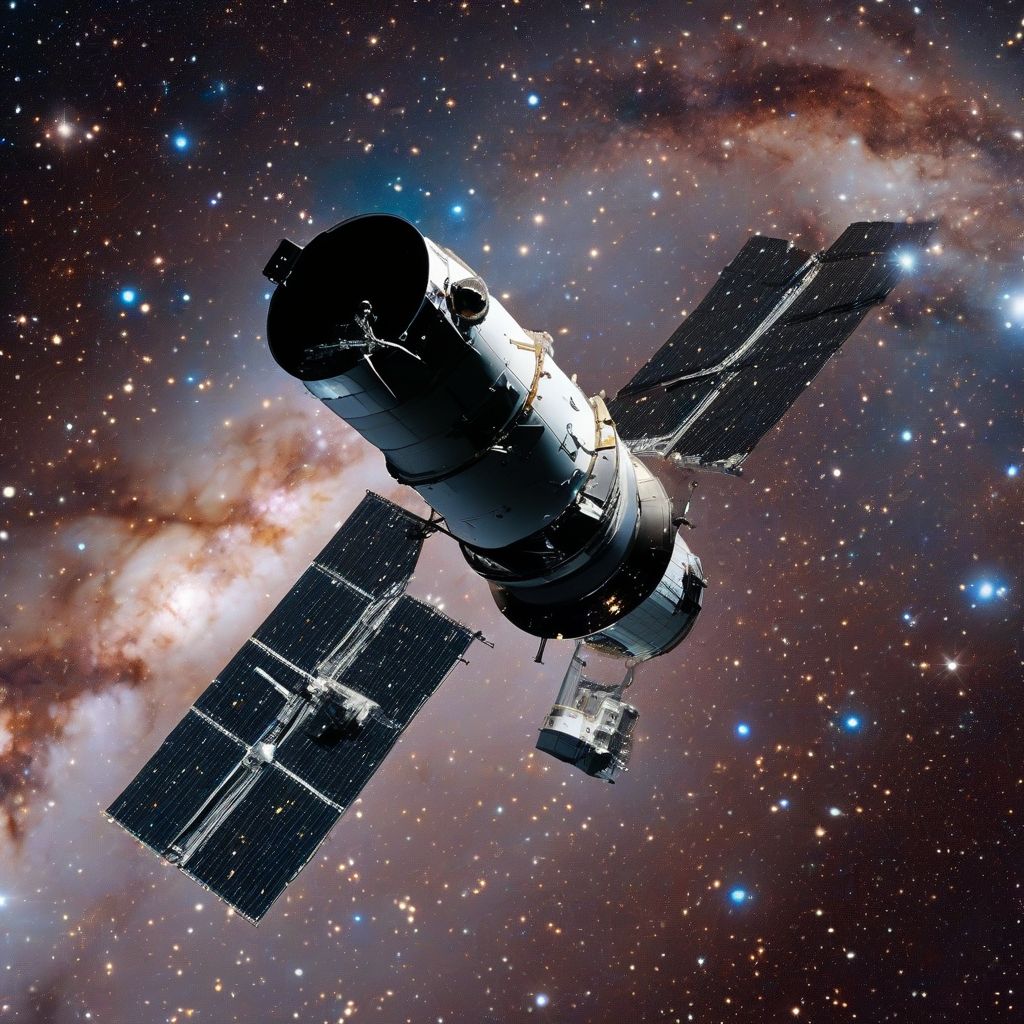Have you ever gazed up at the night sky and felt a sense of wonder? The universe, with its vast expanse and twinkling stars, has fascinated humanity for millennia. Our understanding of this cosmic dance has been revolutionized in recent times, and a key player in this revolution is the space telescope. These technological marvels, stationed high above Earth’s shimmering atmosphere, provide us with an unprecedented view of the cosmos, shaping the landscape of modern astronomy news.
A Clearer View: Why Space Telescopes Matter
Imagine trying to observe a distant galaxy through a rain-streaked window. Earth’s atmosphere, as familiar and life-giving as it is, acts as a similar barrier to astronomers. The twinkling of stars, a beautiful sight to the naked eye, is actually caused by atmospheric distortion. Space telescopes, positioned beyond this turbulent layer, provide a crystal-clear view of the universe.
Piercing the Veil: Observing the Unobservable
The advantages of space telescopes go beyond just clarity. They detect wavelengths of light that are blocked by our atmosphere, such as ultraviolet radiation, X-rays, and gamma rays. These wavelengths carry crucial information about the most energetic phenomena in the universe, from exploding stars to black holes.
 Hubble Space Telescope
Hubble Space Telescope
For example, the Hubble Space Telescope, a name synonymous with breathtaking cosmic images, observes in visible, ultraviolet, and near-infrared light. Its iconic images have graced countless astronomy news articles, revealing the intricate structures of nebulae, the birthplaces of stars, and galaxies billions of light-years away.
Time Machines: Looking Back to the Dawn of Time
One of the most profound contributions of space telescopes is their ability to act as time machines. Because light takes time to travel vast cosmic distances, when we observe distant objects, we are seeing them as they were in the past. Space telescopes like Hubble have peered back billions of years, providing us with glimpses of the early universe and the formation of the first galaxies.
Beyond Hubble: A New Generation of Discovery
While Hubble’s legacy is undeniable, it represents only the beginning of our space-based exploration. The astronomical community eagerly awaits the launch of the James Webb Space Telescope (JWST), the largest and most powerful space telescope ever built.
Infrared Eyes on the Universe: Unveiling Hidden Secrets
JWST’s ability to observe in infrared light will be a game-changer. Infrared radiation can penetrate clouds of gas and dust that obscure visible light, allowing astronomers to study star formation within these veiled regions. It will also enable us to study the atmospheres of exoplanets, planets orbiting other stars, potentially revealing signs of life.
The Impact on Astronomy News: A Universe of Stories
The constant stream of discoveries made by space telescopes fuels a constant stream of astronomy news, captivating the public and inspiring future scientists.
From Sensational Images to Groundbreaking Discoveries
Space telescopes have provided us with iconic images like the “Pillars of Creation,” towering columns of gas and dust in the Eagle Nebula, and the “Hubble Deep Field,” a seemingly empty patch of sky revealed to be teeming with thousands of galaxies. These images capture the imagination and remind us of the awe-inspiring scale and beauty of the universe we inhabit.
Engaging the Public: A Window to the Cosmos
Beyond the stunning visuals, space telescopes have played a crucial role in communicating complex scientific discoveries to the public. News articles featuring space telescope observations often become widely shared, sparking discussions about our place in the universe and inspiring a sense of wonder.
The Future is Bright: Continued Exploration and Discovery
The role of space telescopes in shaping modern astronomy news will only continue to grow. With new telescopes planned and technological advancements on the horizon, we can expect even more groundbreaking discoveries in the years to come.
As we peer deeper into the cosmos, we are sure to uncover new mysteries, challenge our understanding of the universe, and inspire future generations to continue exploring the final frontier.
[amazon bestseller=”telescope”]
These powerful instruments not only provide us with a window to the universe but also remind us of the power of human ingenuity and our endless capacity for exploration and discovery.
